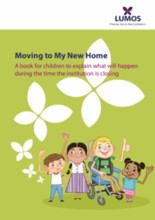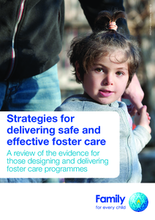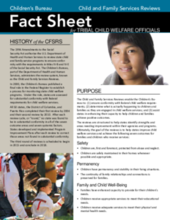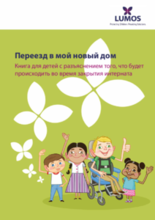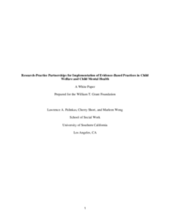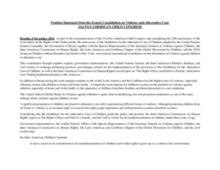Displaying 1821 - 1830 of 2221
The aim of this book is to explain to children what to expect during the time the institution in which they reside is closing.
This report from Family for Every Child begins to fill the gap in understanding on how to deliver effective, safe foster care programmes through an exploration of the literature and interviews with experts.
This factsheet looks at whether States in the US are following best practices in regards to the Indian Child Welfare Act, such as notification of Tribes and placement preferences. Findings from the Reviews are presented.
This thesis paper employed qualitative methods to capture the online interaction of undergraduate volunteers as part of an undergraduate-student mentorship program. This program was developed to provide mentorship and tutoring for at-risk-youth at a foster care institution.
Целью этой книги является объяснить детям то, что их ожидает во время закрытия интерната.
The purpose of this paper is to explore negative peer interactions in foster care.
This paper reviews the literature on foster care and explains the issues that foster children in Canada experience.
This paper addresses the disconnect between research and practice in regards to child welfare and child mental health services in the US.
This article presents results from a quasi-experimental study in South Africa examining differences in grant uptake over a two year period among 1487 children enrolled in one of two types of supportive home visiting programming: volunteer-based or paraprofessional.
In advance of the 21st Pan American Child and Adolescent Congress, an international consultation on the elimination of violence against children in alternative care was convened. This position statement from the consultation was presented at the 21st Pan American Child and Adolescent Congress.

